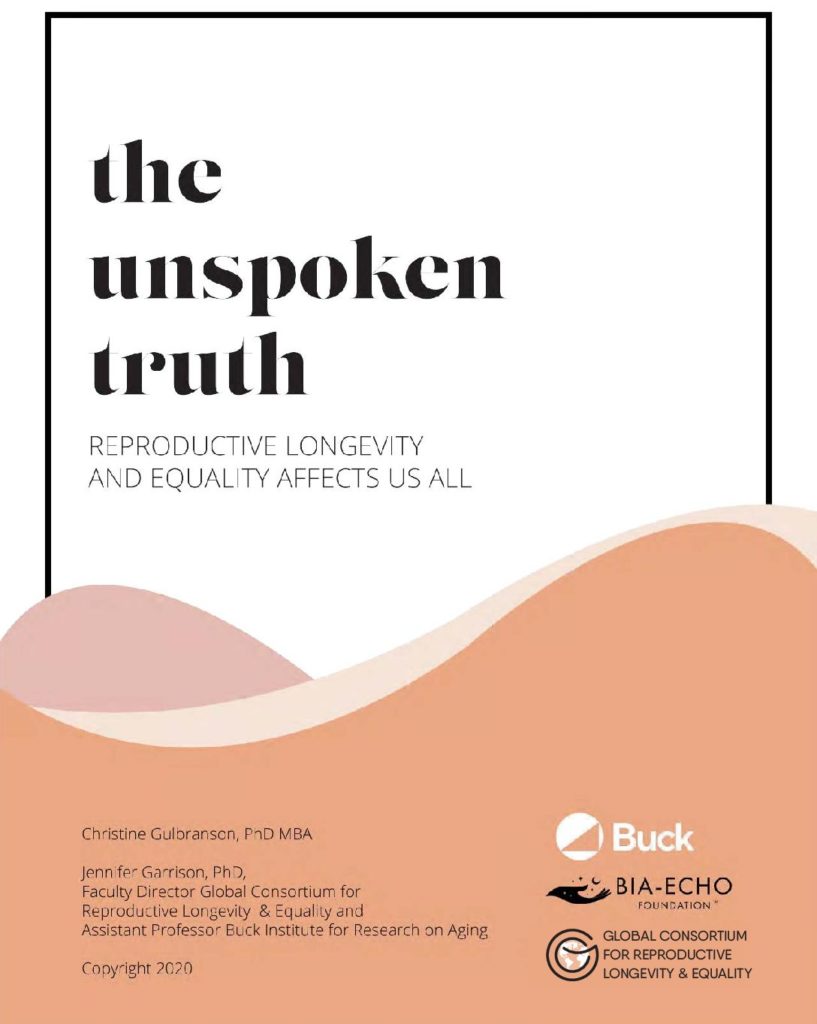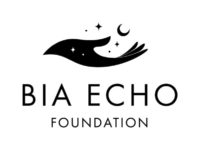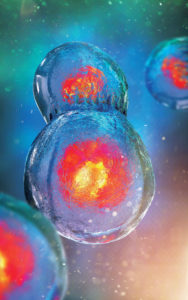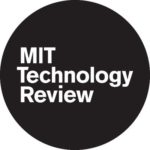
ABOUT THE GCRLE:
With the intramural establishment of the Center for Reproductive Longevity and Equality (CRLE), the Buck Institute has pioneered the first facility that focuses solely on female aging as it relates to equality. Now, through the generous support of the Bia Echo Foundation, the Global Consortium for Reproductive Longevity and Equality (GCRLE), launched as an extramural start-up initiative through the Buck Institute.
The GCRLE is advancing research to better understand the underlying causes of female reproductive aging. The end of fertility sets off a cascade of negative health effects in a woman’s body. As a society, every aspect of a woman’s life is influenced by the fact that reproductive capacity is limited — overall health, family planning, career decisions. Despite its profound impact on health and well-being, female reproductive aging is an understudied topic.
Through funding, collaboration, and innovation, we intend to accelerate the pace of discovery and inform the path to intervention. We believe we can profoundly alter the societal balance toward equality for women by defining what leads to menopause and developing interventions to slow or reverse it. Our goal is to build the field to understand the basic biological mechanisms that trigger female reproductive senescence, from the earliest stages through to menopause, and ultimately leverage this understanding to intervene and balance the scales.
|
Peruse our White Paper detailing how reproductive longevity and equality affects us all! |
To support this important cause, please click here or scan this QR code. |
CONSORTIUM DETAILS
We are building a network communications platform to foster dialogue and collaboration among researchers working on female reproductive aging.
A Scientific Advisory Council composed of leaders in the field from all over the world reviews, identifies, and recommends the most promising grant applications based on quality of science, impact and alignment with the Consortium’s goals.
Details about the GCRLE Grant Review Process:
The grant review process follows strict protocols to ensure transparent, fair, and unbiased outcomes. Applications are scored by an independent Scientific Advisory Council (SAC) based on the quality of science, impact and alignment with the Consortium’s goals. To reduce implicit gender and institution biases, we implemented an innovative initial blind review step in which SAC members scored each application solely based on scientific merit without any identifying information, followed by a full unblind review. Final application scores are then reviewed and discussed by all committee members during an in-person video meeting and top applications unanimously voted for funding. Scientific Advisory Council members are recused from reviewing any applications with self-identified conflicts of interest, and do not review grant mechanisms for which they themselves, or their lab members, applied. Buck Institute employees are eligible to apply for GCRLE grants, but they receive no special consideration in the review process.
Scientific Advisory Council, Global Consortium for Reproductive Longevity and Equality
-
 Marcelle Cedars, MD University of California, San Francisco
Marcelle Cedars, MD University of California, San FranciscoDr. Marcelle Cedars is the Director of the UCSF Center for Reproductive Health, the Division of Reproductive Endocrinology and Infertility and is a clinical specialist in the fields of in vitro fertilization, perimenopause and polycystic ovarian ovary syndrome (PCOS). As Director of the Division of Reproductive Endocrinology, she coordinates the relationship between science and research being done at UCSF and personalized care for medical center patients. Cedars received her medical training at the University of Texas Southwestern School Of Medicine, completed her residency in Obstetrics and Gynecology at Parkland Memorial Hospital in Dallas, and did her fellowship in Reproductive Endocrinology at UCLA. Her clinical and research interests include ovarian aging, polycystic ovary syndrome and assisted reproduction. She is an NIH-funded researcher and has chaired the FDA panel on Obstetrical and Gynecological Devices and served as President of the Society for Reproductive Endocrinology and Infertility.
-
 Francesca Duncan, PhD Northwestern University
Francesca Duncan, PhD Northwestern UniversityFrancesca Duncan graduated from Haverford College with a BS in Biology and Biochemistry (2000) and earned her doctorate in Cell and Molecular Biology from the University of Pennsylvania (2006). She is currently an Assistant Professor in the Department of Obstetrics and Gynecology and Executive Director of the Center for Reproductive Science at Northwestern University. She is also an Assistant Professor in Residence at the Buck Institute in the Center for Reproductive Longevity and Equality. Research in the Duncan laboratory uses mammalian model systems to test the overarching hypothesis that deterioration of gamete-intrinsic cellular pathways together with changes in the ovarian microenvironment contribute to the reproductive age-associated decline in egg quantity and quality. The laboratory’s work is at the interface of reproductive aging and systemic aging; physiologic and iatrogenic reproductive aging; gamete, follicle, and ovarian biology; and reproductive science and medicine. Insights from this research will help design targeted interventions to ameliorate reproductive aging, laying the foundation to simultaneously improve female fertile-span and health-span across generations. Research in her lab is funded by NIH R01 and R21 awards. Dr. Duncan has 60 manuscripts in the peer-reviewed literature and has been featured in the press. She is the recipient of several honors and awards, including a 2017 Fulbright fellowship and the 2019 Society for the Study of Reproduction Virendra B. Mahesh New Investigator award.
-
 Jennifer Garrison, PhD Buck Institute for Research on Aging
Jennifer Garrison, PhD Buck Institute for Research on AgingJennifer Garrison, PhD, is an Assistant Professor at the Buck Institute for Research on Aging, Faculty Director of the Global Consortium for Female Reproductive Longevity and Equality, and co-Director of the Buck-USC Biology of Aging PhD Program. She holds secondary appointments in the Department of Cellular and Molecular Pharmacology at the University of California, San Francisco (UCSF) and the Leonard Davis School of Gerontology at the University of Southern California (USC). Her research focuses on understanding how chemical communication between the brain and other tissues influences aging. The Garrison lab studies interactions between the ovary and brain during middle age to identify the neuronal factors that lead to the onset of reproductive decline. Dr. Garrison was named an Alfred P. Sloan Foundation Neuroscience Research Fellow and an Allen Institute for Brain Science Next Generation Leader and is the recipient of a Pathway to Independence Award and a Maximizing Investigators’ Research Award (MIRA) for Early Stage Investigators from the National Institutes of Health, a Glenn Medical Foundation Award for Research in Biological Mechanisms of Aging, and a Junior Faculty Award from the American Federation of Aging Research.
-
 Marcia Haigis, PhD Harvard Medical School
Marcia Haigis, PhD Harvard Medical SchoolMarcia C. Haigis is a Professor in the Department of Cell Biology at Harvard Medical School. She obtained her PhD in Biochemistry from the University of Wisconsin in 2002 and performed postdoctoral studies at MIT studying mitochondrial metabolism and aging. Dr. Haigis is an active member of the Paul F. Glenn Center for the Biology of Aging, and a member of the Ludwig Center at Harvard Medical School. In 2018, Dr. Haigis was selected for the National Academy of Medicine Emerging Leaders in Health and Medicine Program. Her research aims to identify molecular mechanisms by which mitochondria respond to cellular stress and elucidate how these cellular mechanisms contribute to aging and age-related diseases, such as cancer.
-
 Bluma Lesch, MD, PhD Yale University
Bluma Lesch, MD, PhD Yale UniversityBluma (Bibi) Lesch is an Assistant Professor of Genetics at Yale School of Medicine. She received her PhD in Biological Sciences from Rockefeller University and her MD from Weill Cornell Medical School, and conducted postdoctoral research at Whitehead Institute. She is the recipient of a Burroughs-Wellcome Career Award and was named a 2019 Searle Scholar. Her research focuses on the evolution and regulation of chromatin in the germ line, with an emphasis on the role of histone modifications. She discovered that mammalian germ cells maintain an epigenetically poised state at promoters of somatic developmental genes, and that evolution of poising in the mammalian germ line is linked to evolution of somatic developmental gene regulatory networks. She recently reported that chromatin perturbations during male germ cell development result in epigenetically-inherited cancer susceptibility in a mouse model, uncovering a new contribution of paternal epigenetics to disease. Current research in the Lesch lab is aimed at defining the functional consequences of evolutionary divergence in chromatin state and identifying new mechanisms for regulation of germline chromatin and epigenetic inheritance.
-
 Coleen Murphy, PhD Princeton University
Coleen Murphy, PhD Princeton UniversityColeen T. Murphy is a Professor of Genomics and Molecular Biology at Princeton University. She graduated from the University of Houston with a B.S. in Biochemistry and Biophysics, then earned her doctorate in Biochemistry at Stanford University, studying the structure-function determinants of the motor protein myosin. Dr. Murphy became interested in applying new quantitative technologies to approach the question of aging during her postdoctoral work in Dr. Cynthia Kenyon’s lab (UCSF), developing microarray approaches to identify the set of genes downstream of the insulin signaling/FOXO longevity pathway, revealing a a vast array of downstream cellular processes, including stress response, proteostasis, metabolism, immunity, autophagy, and intercellular signaling, to extend cellular and organismal maintenance with age. In her own lab, Dr. Murphy’s team has developed C. elegans models of human “quality of life” aging phenotypes, such as cognitive aging and reproductive aging; these processes are remarkably well-conserved at the molecular level, and her group has identified genetic pathways that can extend these processes with age through the development of quantitative assays and genomic approaches to study these aging phenomena.
-
 Mitinori Saito, MD, PhD Kyoto University
Mitinori Saito, MD, PhD Kyoto UniversityMitinori Saitou received his MD and PhD (under Prof. Shoichiro Tsukita) from the Kyoto University, and performed his postdoctoral work at the Wellcome Trust/Cancer Research UK Gurdon Institute (with Prof. Azim Surani). He was appointed team leader at the RIKEN Center for Developmental Biology in 2003. He was appointed Professor at the Kyoto University Graduate School of Medicine in 2009, and Director of the JST ERATO program in 2011. He was appointed Professor at the Kyoto University Institute for Advanced Study (KUIAS) and Director of Institute for the Advanced Study of Human Biology (ASHBi) in 2018. His work focuses on the mechanism and reconstitution in vitro of germ cell development in mice, non-human primates including great apes, and humans.
-
 Melina Schuh, PhD Max Planck Institute
Melina Schuh, PhD Max Planck InstituteMelina Schuh’s laboratory studies how errors arise during the meiotic divisions of mammalian oocytes. Such errors are the leading cause of miscarriages and the age-related decline in female fertility. Her lab carried out the first studies of meiosis in live human oocytes and developed strategies for high content screens for meiotic genes in mammals, as well as a method for the acute degradation of endogenous proteins, called Trim-Away. Recent work from her lab established essential functions for actin in acentrosomal spindle assembly, and led to the discovery of the LISD, a liquid-like spindle domain, in mammalian oocytes. Melina Schuh studied biochemistry at the University of Bayreuth. After completing her PhD at EMBL, Heidelberg (2008), she became a group leader at the MRC LMB in Cambridge, UK. Melina Schuh has been a Director at the Max Planck Institute for Biophysical Chemistry in Göttingen, Germany since 2016.
-
 Yousin Suh, PhD Columbia University
Yousin Suh, PhD Columbia UniversityYousin Suh, Ph.D., is the Charles and Marie Robertson of Reproductive Sciences in Obstetrics and Gynecology, Professor of Genetics and Development, and Director of Reproductive Aging in Obstetrics and Gynecology in the Vagelos College of Physicians and Surgeons at Columbia University. She investigates the (epi)genetic component that underlies the interface of intrinsic aging and disease. The approach she follows is based on the identification of (epi)genome sequence variants associated with age-related disease risk or its opposite, i.e., an unusual resistance to such disease. For this purpose her target populations are either cohorts of middle-aged individuals followed longitudinally for signs of all major age-related diseases, or cohorts of extremely long-lived individuals who managed to ward off such diseases. To tackle the key problem of identifying the functional impact of any observed association, she applies specific functional tests, including in silico modeling, cell culture assays and mouse models. Discoveries thus far made include novel, rare alleles associated with extreme longevity, sirtuin variants that confer risk for heart disease, functional non-coding variants in the gene desert Chr. 9p21 locus underlying multiple age-related diseases, longevity-associated miRNAs, and epigenetic signatures of cellular senescence. Her contributions in the field have been recognized by the Glenn Award for Research in Biological Mechanisms of Aging. She has organized numerous international symposiums on functional genomics of aging, is on the Editorial Boards of numerous Journals including PLoS Genetics and Aging Cell as an Associate Editor, and participates in advisory committee members for several research institutions and companies.
-
Y. S.Yap Seng Chong, MD Emeritus Scientific Advisory Council Member
National University of Singapore
2020-2022 -
A. S.Allan Spradling, PhD Emeritus Scientific Advisory Council Member
Carnegie Institution for Science
2020-2022
Reproductive Biology Hub
We are building a hub facility at the Buck Institute to provide experimental support and training in all aspects of ovarian biology. The goal of this facility is to provide experimental support and training for studies that require expertise in ovarian biology. The hub will be accessible to any lab in the world, including members of the consortium. In addition to state-of-the-art instrumentation and fee-for-service assays, the hub will provide an opportunity for investigators to send lab members to obtain training in the techniques necessary to carry out these experiments in their home labs. By providing resources to plan and execute experiments, we hope to lower the barrier to entry and grow the field.
IT and big data are essential to advancing the field. Thus, we are building a bioinformatics core that will provide analytic tools for multi-omics projects to investigators who are part of the Consortium. To accelerate the discovery process, the bioinformatics core will also compile and organize large datasets generated by the consortium to be made available to consortium scientists first and later to the scientific community at large.
-
 Jennifer Garrison, PhD Co-Founder and Director
Jennifer Garrison, PhD Co-Founder and DirectorJennifer Garrison, PhD, is an Assistant Professor at the Buck Institute for Research on Aging, co-Founder and Director of the Global Consortium for Reproductive Longevity and Equality, and a member of the Buck Center for Reproductive Longevity & Equality. She holds secondary appointments in the Department of Cellular and Molecular Pharmacology at the University of California, San Francisco (UCSF) and the Leonard Davis School of Gerontology at the University of Southern California (USC).
She is a passionate advocate for women’s health and is pioneering a new movement to advance science focused on female reproductive aging. Her lab studies the role of inter-tissue communication in systemic aging, and how changes in the complex interactions between the ovary and brain during middle-age lead to the onset of reproductive decline in females.
Dr. Garrison received her BA in Molecular Cell Biology from UC Berkeley, completed her PhD at UCSF in Chemistry and Chemical Biology where she was a National Science Foundation Fellow and an ARCS Scholar, and was a Helen Hay Whitney Foundation Postdoctoral Fellow at the Rockefeller University. She has played an active role in the aging field, as a member of the Board of Directors for the American Aging Association (AGE) and the Alliance for Longevity Initiatives (A4Li), a reviewer for the American Federation of Aging Research (AFAR), and as Associate Director of the Buck-USC Biology of Aging PhD program. Dr. Garrison was named an Alfred P. Sloan Foundation Neuroscience Research Fellow and an Allen Institute for Brain Science Next Generation Leader and is the recipient of a Glenn Medical Foundation Award for Research in Biological Mechanisms of Aging, a Junior Faculty Award from the American Federation of Aging Research, and a Healthy Longevity Catalyst Award from the National Academy of Medicine.
https://gcrle.org
http://garrisonlab.com
https://www.linkedin.com/in/drjennifergarrison/
@jenngarrison -
 Alison Rodrigues Senior Administrator
Alison Rodrigues Senior AdministratorARodrigues@buckinstitiute.org
Email us at info@gcrle.org.
IN THE NEWS

Ovarian research aims to extend fertility and lengthen lives by delaying menopause—but the ultimate moonshot would be ending it altogether.
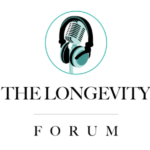
The Longevity Forum Podcast I Fertility and Longevity with Nicole Shanahan, Claire Mellon & Rebecca Gibbs

Global Consortium for Female Reproductive Longevity and Equality announces Inaugural 2020 Grant Awards

The Bia-Echo Foundation announces the Global Consortium for Female Reproductive Longevity and Equality in partnership with the Buck Institute for Research on Aging

The Bia-Echo Foundation announces the Global Consortium for Female Reproductive Longevity and Equality in partnership with the Buck Institute

World’s first Center for Female Reproductive Longevity and Equality established at the Buck Institute for Research on Aging

Buck Institute in Novato gets $6 million grant to study negative health effects from menopause
Support the Buck
We rely on donations to support the science that we believe will add years to people's lifespan and decades to their healthspan.
